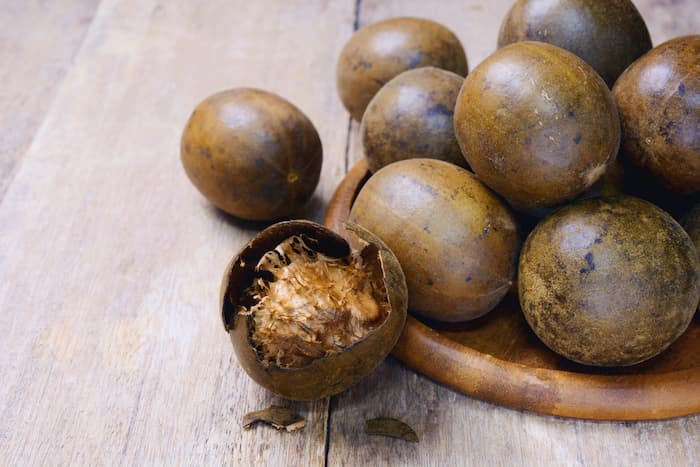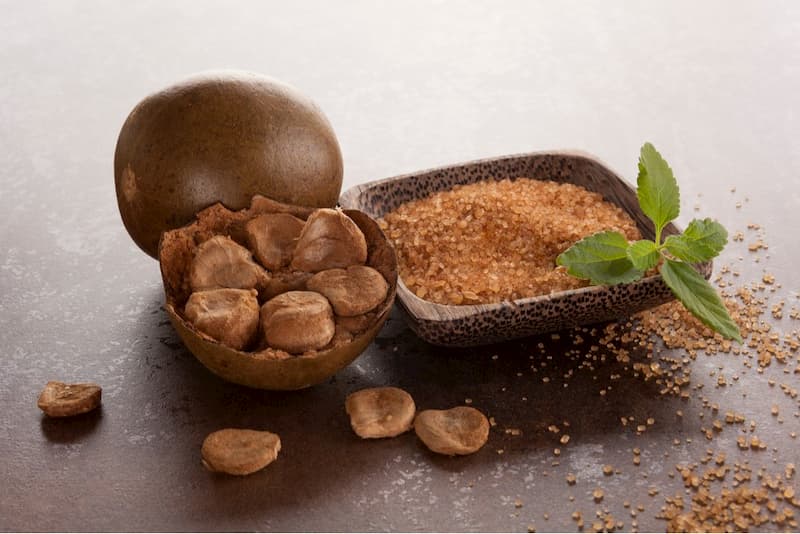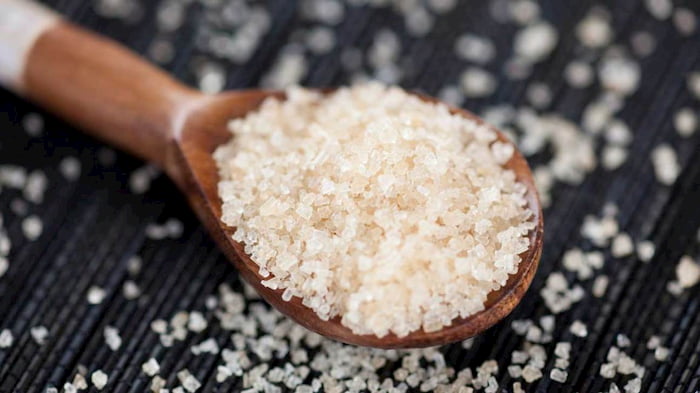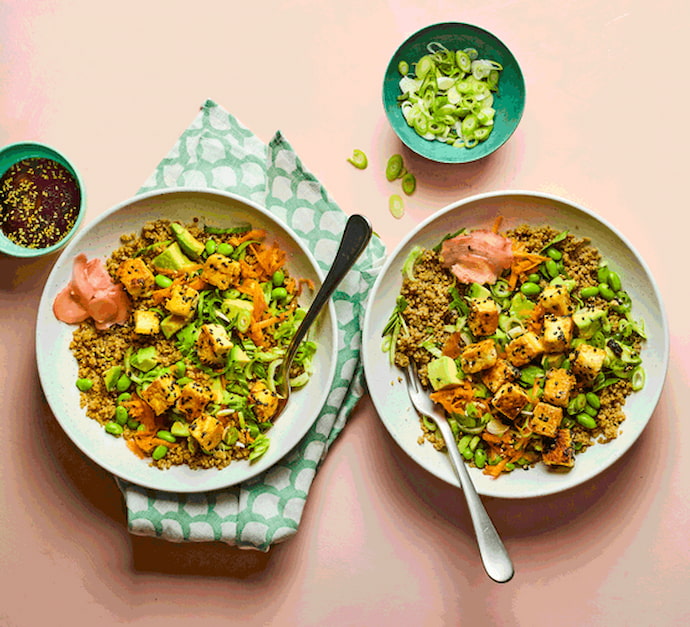Looking for a healthy sugar substitute? You may have heard about pure monk fruit sweetener – a healthy goodie with a funny name that’s extremely popular among keto aficionados and low-carb eaters. But what is monk fruit sweetener?

source: ingredientsnetwork.com
Also known as ‘luo han guo’, monk fruit is a small melon found in parts of China and Thailand. It has been used as a sweetener and a herbal remedy in traditional Eastern medicine for centuries. It only recently became more widely available in other parts of the world in dried and powdered forms.
Monk fruit extract is appealing for three main reasons: it’s unbelievably sweet, has little-to-no calories in its pure powdered form and it won’t raise your blood sugar levels. Plus, there are no known nasty side effects. The Food and Drug Administration classifies pure monk fruit sweetener safe, even for people dealing with diabetes.
How does Monk Fruit Sweetener Compare to Sugar?

source: baotuoitre.com
It’s no secret that consuming too much added sugar can damage your teeth, harm your liver, cause kidney stones, and cause you to gain weight. Monk fruit sweetener hasn’t been proven to do any of these things. Its sweetness comes from mogrosides, which the body processes differently from common sugars like fructose and sucrose.
Monk fruit is a calorie-free sweetener with a glycemic index of zero – just like stevia. This means it won’t cause a rapid spike in your blood sugar compared to high GI foods, like soda and white bread. Monk fruit also contains no carbs, as opposed to on regular sugar ( 1 tablespoon contains 13 grams). This explains why people who are on a low-carb diet opt for monk fruit.
Is Monk Fruit Sweetener Healthy?
Although monk fruit extract is a healthier choice compared to sugar and many other artificial sweeteners, that doesn’t necessarily mean you should add great amounts of it to all your meals. Moderation is key. From a safety standpoint, there would be no negative physical effects, claim medical experts. However, our overall health involves our mental and emotional health as well, and low-calorie or calorie-free sweeteners are generally associated with dieting behaviours that can damage one’s relationship with food. Simply said, adding any kind of sweetener to your food might make you crave sugary things, which may cause a vicious cycle, especially if your goal is weight loss.
Is Monk Fruit Sweetener Safe During Pregnancy?
Studies have shown that there are no adverse side effects of monk fruit sweetener on pregnant women. Still, all mommies-to-be should consume the necessary nutrients and calories for their baby’s growth during pregnancy (don’t forget folic acid and breastfeeding, while being careful not to over-indulge in them. This also means being mindful of consuming all sources of sweeteners, including monk fruit sweetener.
Is Monk Fruit Sweetener OK for Diabetics?
Products containing this sweetener provide a sweet taste and have a low level of carbohydrates, which is important for individuals who have to monitor their carbohydrate intake. Plus, the sweetener itself doesn’t raise blood sugar. So generally speaking, it is safe to use but within the defined acceptable daily intake levels. Nonetheless, people dealing with diabetes should consult their healthcare practitioner first for advice on healthy eating to control their blood sugar levels.
Health Benefits of Consuming Monk Fruit Sweetener

source: healthline.com
Mogrosides (responsible for the sweetness of monk fruit) have antioxidant and anti-inflammatory properties. Therefore, this fruit extract may offer certain health benefits including:
- Antioxidant effects – The antioxidant and anti-inflammatory properties of mogroside extracts can inhibit certain harmful molecules and help prevent damage to your DNA;
- Anti-cancer properties – Animal and test-tube-research suggest that monk fruit extract inhibits cancer cell growth. One study has found that mogrosides suppress leukemia cell growth;
- Anti-diabetes properties – Since monk fruit sweetener has zero calories and carbs, it does not cause diabetes and it is safe to consume by people battling with this issue.
How to Dissolve Monk Fruit Sweetener?
This sweetener is relatively quick-dissolving. It has a sugar-like consistency and is light beige in colour. It does have a slight aftertaste, but many find it more pleasant than a lot of other sweeteners they’ve tried. It is heat stable, which means you can cook with it. 1/4 teaspoon of sweetener equals the sweetness of 1 teaspoon of sugar. Experiment using it in your favourite recipes to find the right balance of sweetness for your taste.



















